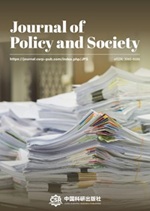Peer Review Process
To maintain scholarly integrity, JPS employs the following double-blind peer-review procedure (neither reviewers nor authors know one another’s identity):
- Upon receipt, in-house staff check the submission for completeness and originality (similarity screening). Papers that pass are assigned to a scientific editor—normally the Editor-in-Chief, or the Guest Editor for special issues; any editor with a conflict is replaced by an editorial-board member.
- The scientific editor decides whether the topic and apparent quality justify external review.
- Manuscripts deemed suitable are handed to an assigned editor (one of Editorial Board Members) who supervises the entire review.
- The assigned editor invites at least two external, independent reviewers. Authors may propose reviewers or request exclusions and must provide adequate contact information; the editor determines whether to follow these suggestions.
- Reviewers assess originality, methodology, contribution to the field, clarity, validity of conclusions, and appropriateness of references.
- Guided by the reviewers’ reports, the assigned editor recommends: accept, minor revision, major revision, resubmit for further review, or reject.
- The Editor-in-Chief reviews this recommendation and makes the final decision.
- Minor revisions: 5-day time frame.
- Major revisions: 14-day time frame.
- Resubmitted manuscripts re-enter the same review loop until a final verdict is reached.
- Authors may appeal a rejection within four weeks; the appeal must present clear arguments and point-by-point responses to the reviewers’ comments. The Editor-in-Chief’s decision on the appeal is final and concludes the matter.



